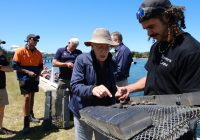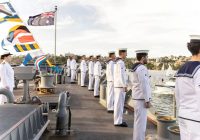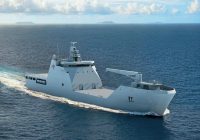That’s a wrap on the peak boating season
Now we have passed the April school holidays, the official peak boating season has wrapped up.
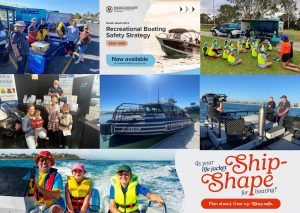
Between October 2024 and April 2025 the Marine Safety SA team:
- launched SA’s Recreational Boating Safety Strategy to help improve boating safety over the next five years
- checked more than 400 lifejackets and welcomed over 800 visitors to the new Stay Afloat lifejacket maintenance clinics
- completed over 3,300 vessel safety checks
- attended a range of events across the State, including the Eyre Peninsula Field Days (Cleve), Riverland Field Days (Barmera),
- Club Marine Boat Show, Dockside Festival (Port Adelaide), South-East Field Days (Lucindale), Little Rippers program (River Murray) and the Goolwa Wooden Boat Festival
The Marine Safety SA team will continue to share boating safety messages via this newsletter and Facebook page, conduct vessel checks and run Stay Afloat clinics at boating clubs.
Book a Stay Afloat clinic at your club
As the weather cools downs the popular Stay Afloat lifejacket maintenance clinics will move indoors.
Are you a member of a boating club or association? You can request a Stay Afloat clinic!
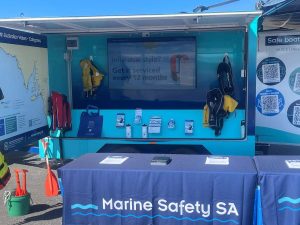
Marine Safety SA can run a session for your members about maintaining and wearing lifejackets, and answer any other boating safety questions.
When booking a Stay Afloat clinic you’ll need:
- a minimum of 15 attendees
- to be responsible for organising the event, including registrations of people attending and the venue for the clinic.
Register your interest here.
Marine Patrol vessel 1 (MP1) has launched
Have you seen the brand-new vessel Marine Patrol 1 (MP1)?
The purpose-built vessel has launched after a 15 month build by local Adelaide boat builder Nautic Star. MP1 incorporates the latest in marine engineering. It offers state-of-the-art navigation, surveillance and communication systems.
This vessel will be used across coastal waters and represents a significant step forward in strengthening the fleet’s overall capabilities to better protect public and environmental safety.
Tips for staying safe if your vessel catches fire
You must carry a fire extinguisher and fire bucket on board – but would you know what to do if a fire started? It’s not as simple as using the fire extinguisher or throwing water with your bucket…
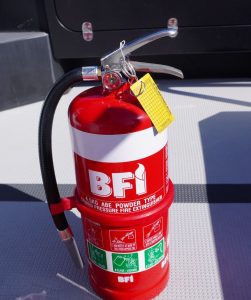
If a fire starts, follow these important steps:
- let passengers know and make a distress call
- shut off fuel and gas lines
- use your extinguisher or bucket
- toss burning objects overboard if safe to do so
- close any hatches to cut oxygen
- cool LPG cylinders or abandon ship if the flames are too close.
- If abandoning ship, move upwind to avoid fuel spreading, stay clear of other vessels and, most importantly, wear your lifejacket.
And remember, fire extinguisher size requirements and standards apply.
Grab bag for your safety equipment
Can you get to all of your safety gear quickly on the water? Would you know exactly where everything is?
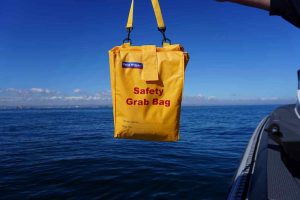
Safety equipment should be stored close together in an easy access location on your vessel. Many people use a grab bag to store their key safety gear so it’s all together and ready to use in an emergency.
Key safety equipment for all boaters includes:
- lifejackets (accessible or wearing them as required)
- in date flares
- emergency communications – EPIRB, PLB, marine radio, mobile phone
- fire extinguisher
- waterproof torch
- bucket with rope attached
- paddles
Make sure you have the right safety equipment here.
Digitalising boat transactions
Did you know you can now transfer both an expired or current boat registration online with a mySAGOV account.
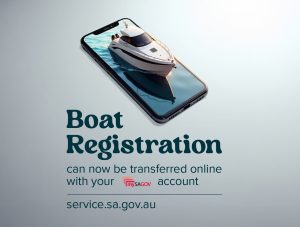
The time saving online option is similar to transferring a vehicle registration and a convenient alternative for the boating community. It will save time by removing the need to visit a Service SA centre, and allowing boaties to enjoy the water faster.
Read more about re-registering a boat.
Find other online boating transactions.






